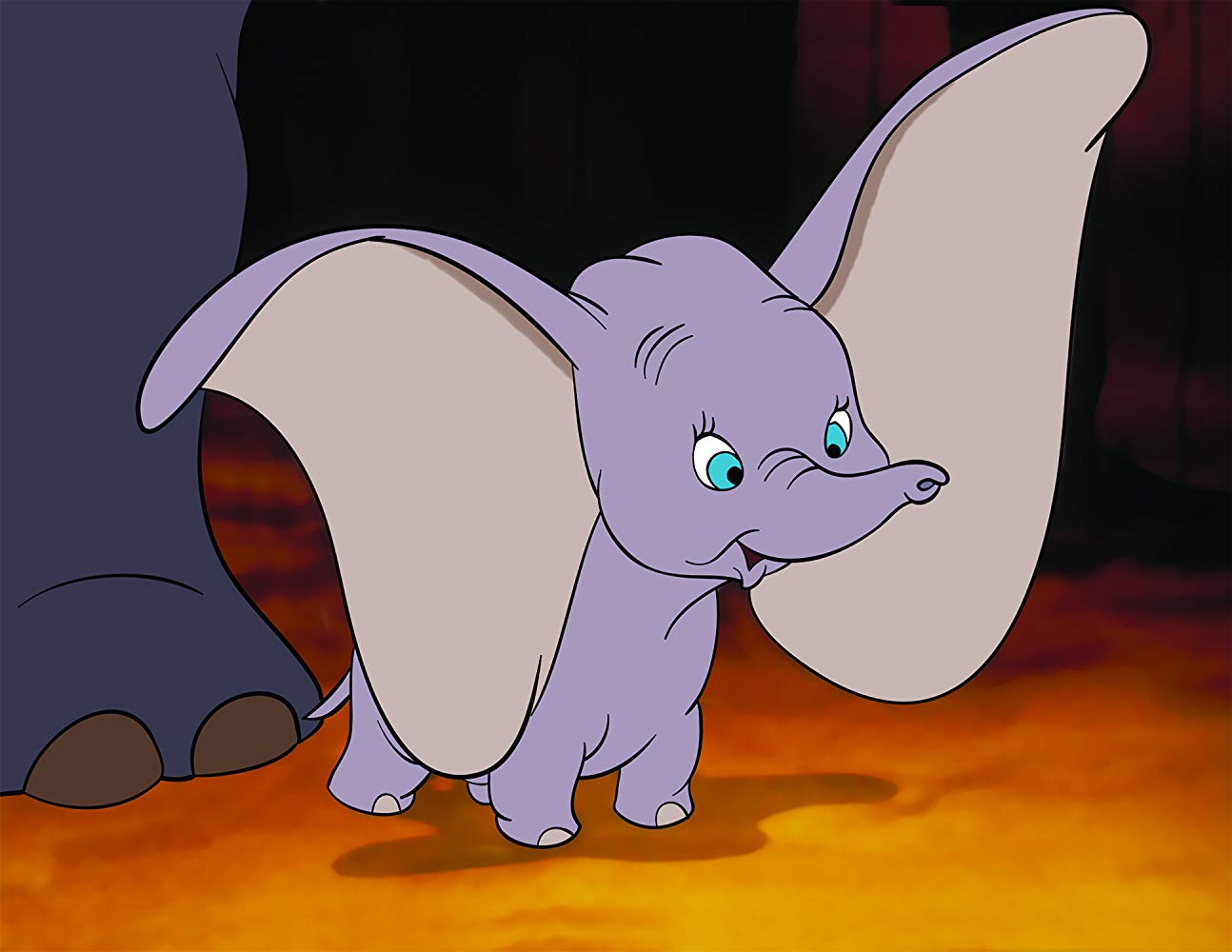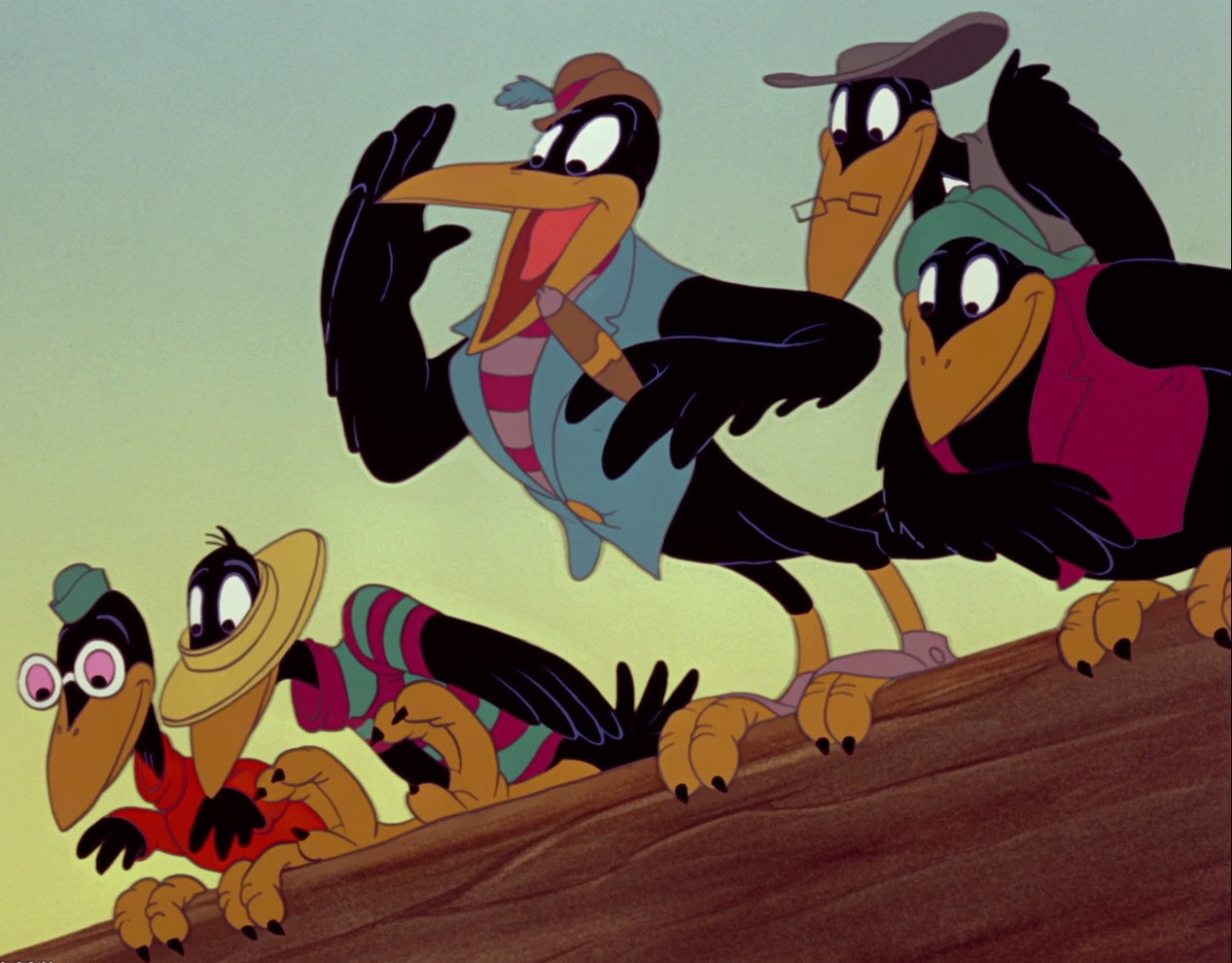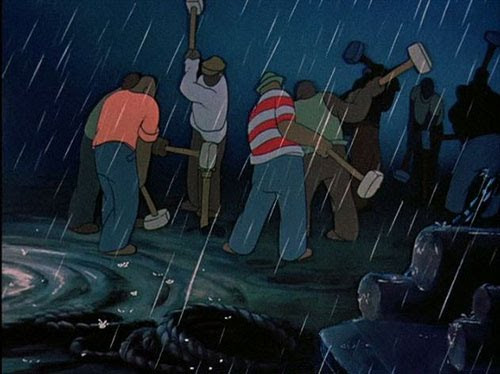Dumbo (1941)
Dumbo was released on October 23, 1941. The American animated film was produced by Walt Disney Productions and released by RKO Radio Pictures. The movie is based on the storyline written by Helen Aberson and Harold Pearl, and illustrated by Helen Durney for the prototype of a novelty toy ("Roll-a-Book"). Jumbo Jr. is the main character of the movie, a semi-anthropomorphic elephant who is called "Dumbo", resembles "dumb". He is often moved for having big ears, however, he has the ability to fly using them as wings. Throughout most of the film, his only true friend, aside from his mother, is the mouse, Timothy – a relationship parodying the stereotypical animosity between mice and elephants.
Plot
Dumbo, a youthful carnival elephant, was brought into the world with cleverly enormous ears has been given the nickname "Dumbo". One day, he is insulted by a gathering of children, actuating his mom into wrath that gets her secured. After Dumbo's ears cause a mishap that harms a considerable lot of different elephants, he is made to dress like a comedian and perform risky tricks. Everything changes when Dumbo finds that his tremendous ears really permit him to fly, and he bewilders everybody at the bazaar with his new ability.
Controversy
The film has been criticized by some for its handling of race. The Encyclopedia of Racism in American Films (2018), notes that "All of the circus laborers are African American, the only time that blacks are seen in any great number in the entire movie."[1] Near the end of the classic, Dumbo and his mouse pal, Timothy, meet a group of five crows who were designed to conveniently match racial stereotypes of African-Americans.
The led crow in the movie was voiced by a white actor, Cliff Edwards, who imitated a Southern African American dialect. Moreover, he was named Jim Crow, after the pre-Civil-War minstrel character. The term “Jim Crow” derives from "Jump Jim Crow” - a parody song about African-Americans that was performed by a white man in blackface.[2].
Another stereotype of black people shown in the movie is during the first act that includes “Song of the Roustabouts”. This scene is showing African-American characters, without facial features, working on the railroad while singing some offensive lyrics. The song openly features racism by using language that fits racial stereotypes. Some of the offensive lyrics are as follows;
We work all day, we work all night
We never learned to read or write
We're happy-hearted roustabouts
Hike! Ugh! Hike! Ugh! Hike! Ugh! Hike!
When other folks have gone to bed
We slave until we're almost dead
We're happy-hearted roustabouts
References
- ↑ Murguia, Salvador (2018). The Encyclopedia of Racism in American Films. Rowman & Littlefield. p. 164. ISBN 978-1-4422-6905-7.
- ↑ https://screenrant.com/dumbo-crows-disney-plus-version/


